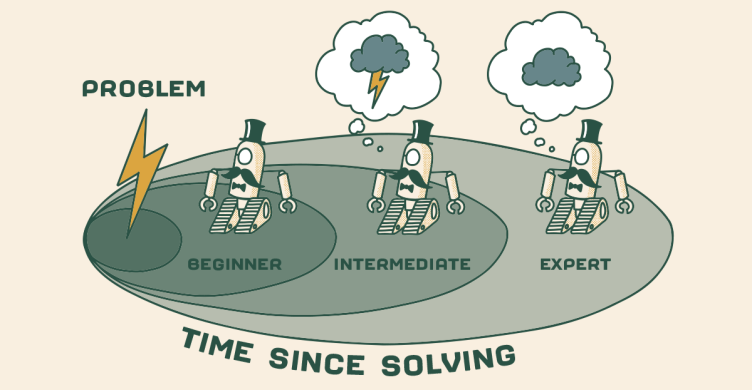"It's odd that what the board recommended was different from what the focus group wanted," one of our clients told me in a meeting. We're in the final stages of development for their website and discovered that the content of several pages needed to be tweaked after a focus group review.
"It makes sense," I told her, "There is a generational gap between your board and who this website is designed to serve."
By generational gap, I didn't mean the difference between Millennials and Boomers. I was speaking to the difference in someone's perspective from when they first encountered the problem the website solves to when they've gone through the journey of developing a deep understanding of it.
In this case, it's the difference between someone who is in the early stages of cancer diagnosis (the focus group) versus someone who has survived cancer (the board.)
It's important to remember that we're all in progress.
As we progress, our trials, choices, and lessons transform us. We're not the same person we were when we started.
- A white belt doesn't think like a black belt.
- A first grader doesn't value the same things as a third grader.
- A new driver doesn't drive like a twenty year commuter.
I once encountered advice advocating the benefits of non-expert teaching. It's a common fallacy that you shouldn't teach others until you're an expert. In practice, people who are intermediates are often excellent teachers. Why? Because they're closer to the problems of being a beginner. As an intermediate, you remember the world of the beginner.
Your board is an exceptional resource. It's full of the most invested and experienced people in your community. They're not going to see things the same as the rank and file members that you serve. That's often a strength. But when it comes to communication and value, ground your messaging choices in the feedback of those you're trying to reach.


